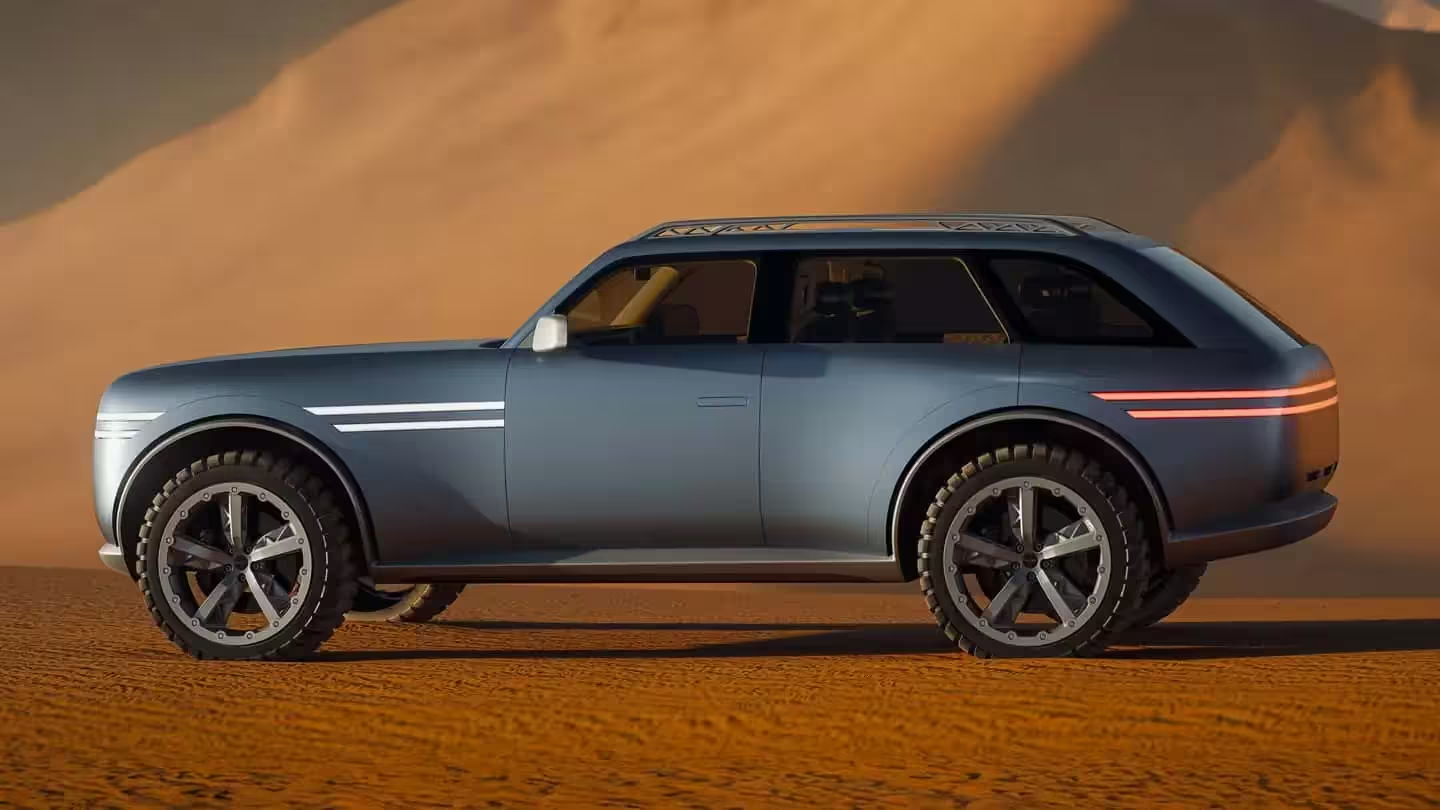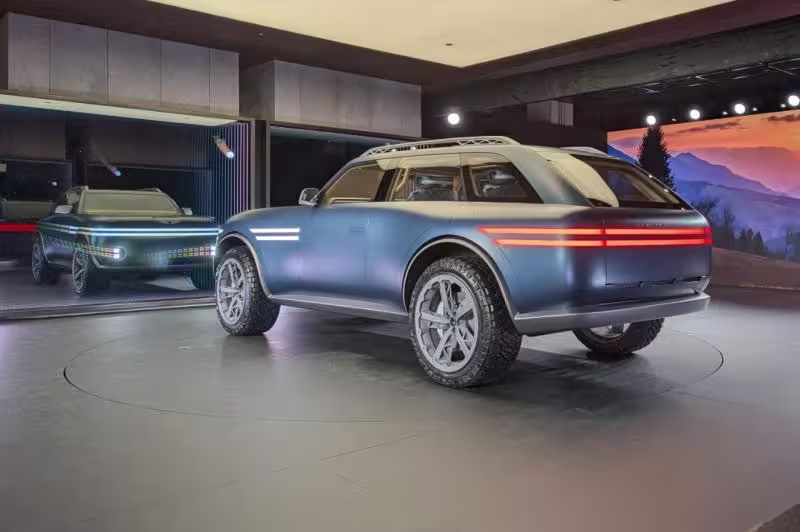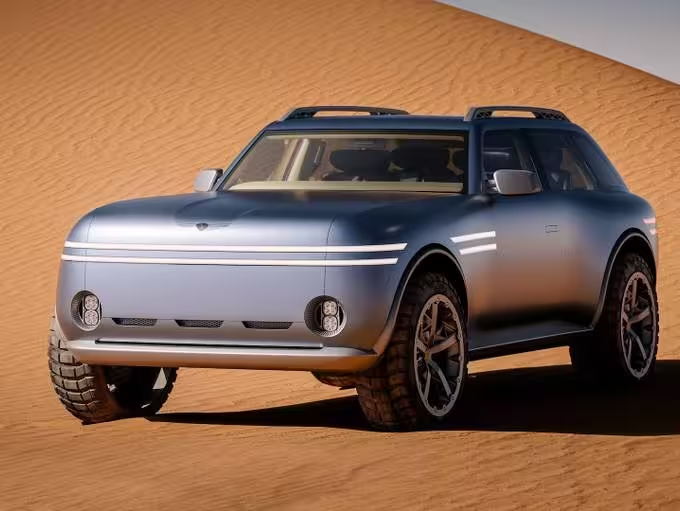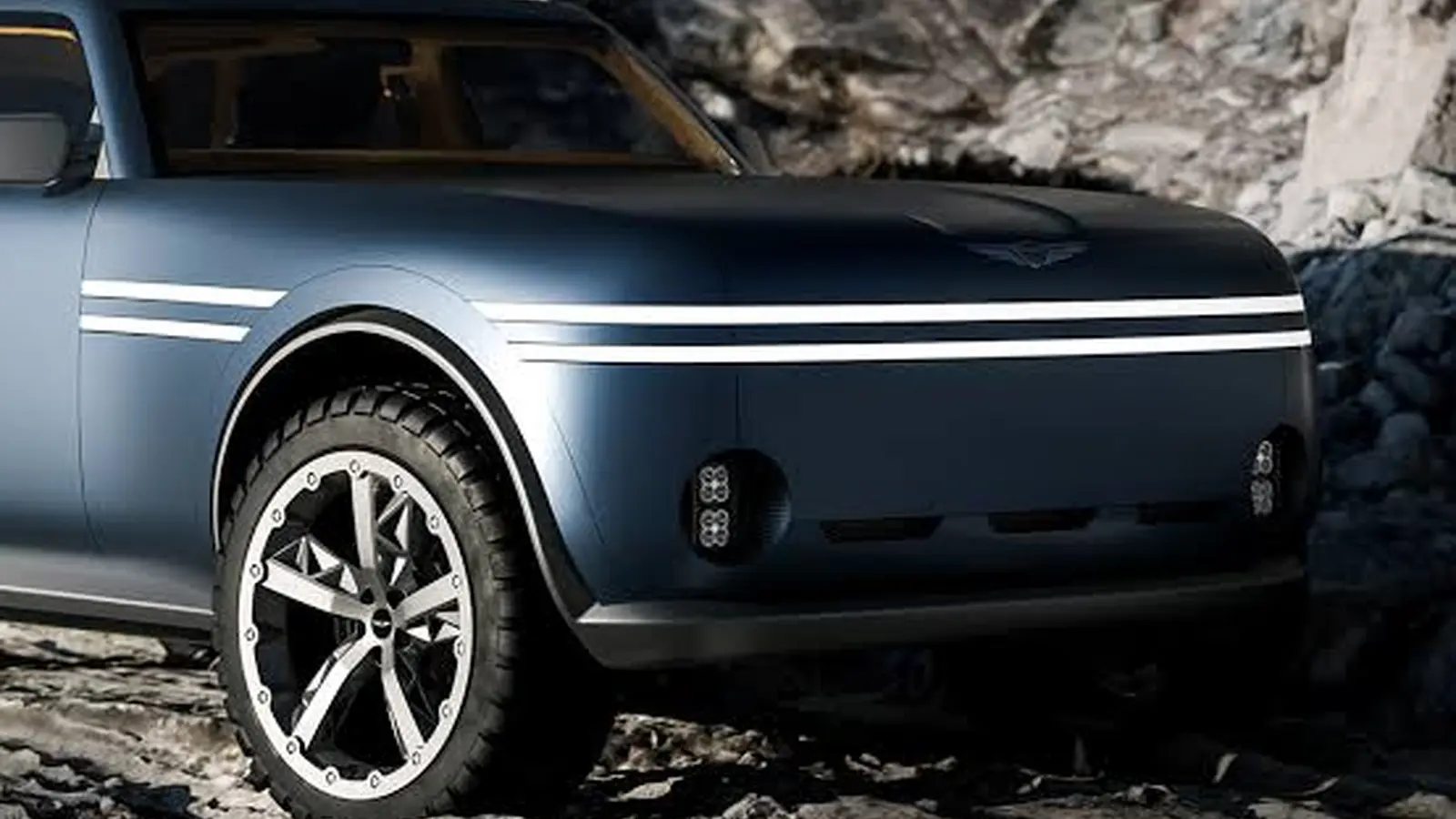7 Minutes
Genesis' bold move toward a luxury off-roader
Genesis stunned the automotive world with the X Gran Equator concept earlier this year, and it wasn't just another stylish showpiece. Concept cars often preview an automaker's future lineup, and the X Gran Equator reads like a clear signal that Genesis is thinking beyond sedans and crossovers — toward a purpose-built, premium off-roader that could take aim at the Mercedes‑Benz G‑Class and the Land Rover Defender.
The company hasn't confirmed production plans, but Hyundai Motor Group CEO José Muñoz recently hinted at a broader strategy: Genesis will expand "beyond the brand's existing model lineup to create new flagship vehicles," specifically calling out an off-roader "infused with the spirit of adventure, just like the X Gran Equator concept." That language matters. In a market where luxury off-roaders sell well both for their capability and halo value, Genesis has an opportunity to carve out a distinct niche.

What name might Genesis choose?
Genesis usually uses the GV prefix for its SUVs — think GV60 through GV80 — and a new three-row model expected to be called the GV90. A production version of the X Gran Equator would likely receive a GV-style name to remain consistent with the lineup. Possibilities include GVX for a unique halo model, or something higher in the numeric hierarchy, though GV100 might feel too clinical for a vehicle meant to evoke adventure.
Platform and engineering: how rugged could it be?
The concept didn’t disclose its platform, but Genesis already has a rear-wheel-drive architecture underpinning the G80 sedan and GV80 SUV. That chassis is adaptable, and Genesis could reinforce it with a dedicated four-wheel-drive transfer case, locking differentials, and off-road‑grade suspension if the brand commits to a serious off-road flagship.
Key takeaways:
- A reinforced RWD-based platform could host multiple powertrains.
- Conversion to a heavy-duty 4x4 system is technically feasible.
- True off-road credibility would require underbody protection, increased ground clearance, and specialized drive modes.

Powertrain options: EV, ICE or hybrid?
The concept looked EV-friendly — no visible exhaust tips and a smooth, covered underbody — but Genesis has several existing powertrains it could borrow for production. Current GV80 engines include a 300-hp turbocharged 2.5-liter four-cylinder and a 375-hp twin-turbo 3.5-liter V6. The G90’s 3.5-liter hybrid V6 delivers roughly 409 hp and 405 lb-ft of torque, approaching the output of some high-performance rivals.
Production possibilities: electric, internal-combustion, or hybrid
- Full EV: Consistent with the concept’s visuals, an EV would deliver instant torque and off-road traction advantages, but would require battery-protection engineering and weight management.
- Hybrid: Offers strong power and range versatility — a pragmatic choice for luxury off-roaders.
- ICE performance variants: A twin-turbo V6 would give the vehicle the grunt customers expect from a halo SUV.
Genesis could also consider a special high-performance trim — the marque’s equivalent of Mercedes‑AMG — though such a halo powertrain might be reserved for limited runs.
Styling: how much of the concept will survive?
Hyundai and Genesis often keep production designs remarkably faithful to their concept previews. The X Gran Equator’s short overhangs, boxy front fascia, long flat hood and sloping roofline are textbook off‑roader cues that would translate well to a production SUV. Signature Genesis design elements — notably the two-line lighting motif wrapping the front and rear — are likely to remain, reinforcing brand identity.
Inside, the concept favored tactile controls and round dials instead of massive glass screens, and the cabin appeared more refined than rugged, with high-quality materials and four-seat luxury. A production version will probably blend those premium touches with the practicality and touchscreen interfaces mainstream buyers expect: larger screens, more seating configurations, and more conventional center‑console controls.

Pricing and market positioning
If Genesis positions this vehicle as a halo model — a true G‑Class competitor — expect a significant price premium. The GV80 starts just under $60,000 today, and the upcoming three-row GV90 should sit above that. To compete with the Mercedes‑Benz G550 (which starts near $150,000) or a fully optioned Defender, Genesis will need to combine genuine off-road capability with top-tier luxury finishes.
Potential pricing scenarios:
- Entry-level halo trim: likely above the GV90, potentially in the six-figure range.
- Fully optioned flagship: could climb toward G‑Class territory depending on materials, off-road hardware, and performance packages.
Even if most owners never tackle rugged terrain, authenticity matters in this segment: buyers want real capability wrapped in exclusivity.
When could we see it arrive?
No official production timeline exists. Genesis is focused on expanding its SUV lineup, and the GV90 three-row model is expected around mid-2026. If Genesis commits to building an off-roader based on the X Gran Equator, it would logically follow the GV90 launch rather than precede it. That puts a conceivable arrival window in the late 2020s, assuming development moves ahead.
How it stacks up vs. G‑Class and Defender
Even at concept stage, the X Gran Equator signals Genesis wants to marry luxury with adventure. The G‑Class sits at the pinnacle of handcrafted, boxtype luxury off-roaders, while the Defender emphasizes rugged capability with bespoke options. Genesis can differentiate by:
- Offering cutting-edge tech and modern luxury at a competitive price.
- Balancing on-road refinement with authentic off-road hardware.
- Leaning into distinctive Genesis styling and interior craft.
Quote to remember: José Muñoz said the Gran Equator and other Genesis concepts "exemplify our ambition to offer leading products that deliver exceptional experiences." That sums up the brand’s intent: build vehicles that are both emotional and functional.
Final thoughts
The X Gran Equator concept is more than a design exercise — it’s a directional statement. Whether Genesis ultimately launches a production G‑Class rival remains unconfirmed, but the pieces are in place: platform adaptability, potent powertrain options, compelling design language, and an executive mandate to expand into flagship segments.
For buyers and enthusiasts, a Genesis off-roader promises a fresh alternative to established luxury icons. If Genesis follows through, expect a vehicle that emphasizes premium materials, modern technology, genuine off-road capability, and a pricing strategy aimed at carving its own space between Defender practicality and G‑Class glamour.
Highlights:
- Name likely to follow GV nomenclature (GVX or a high-numbered GV).
- Possible powertrains: EV, hybrid, or existing twin-turbo V6 options.
- Pricing could enter six-figure territory for halo trims.
- Production, if approved, would likely arrive after the GV90 in the latter half of the decade.
Watch this space: the X Gran Equator may be the start of a new chapter for Genesis — one where adventure and luxury meet on and off the pavement.
Source: motor1
Comments
mechbyte
Interesting idea, but can Genesis actually match G-Class durability? EV weight, battery protection, resale value etc — lots of questions. Curious about pricing and real offroad testing, not just concept pics.
v8rider
Whoa didnt expect Genesis to go full off-roader. The X Gran Equator looks killer, but will it have real lockers and skid plates? Hope they dont just sell glam — need guts too. If they pull it off could be a game changer


Leave a Comment